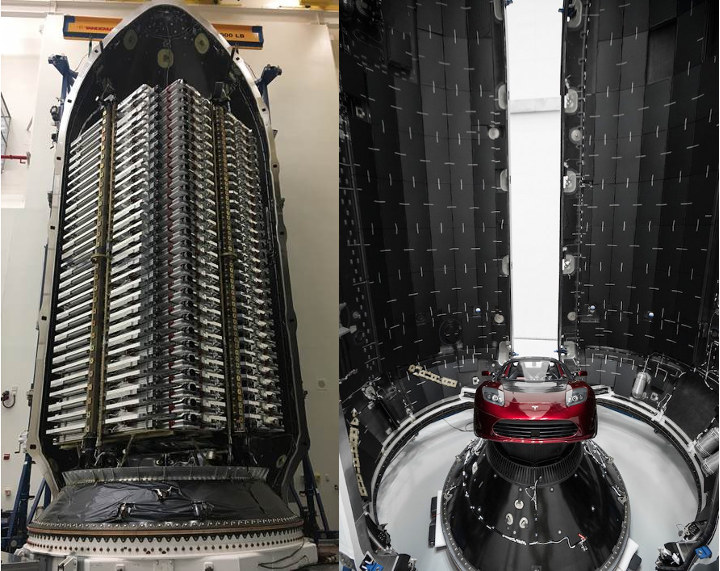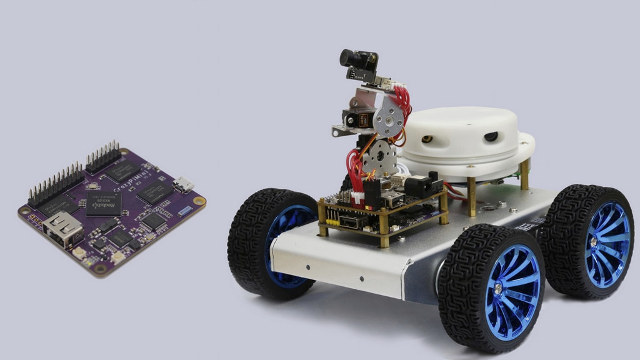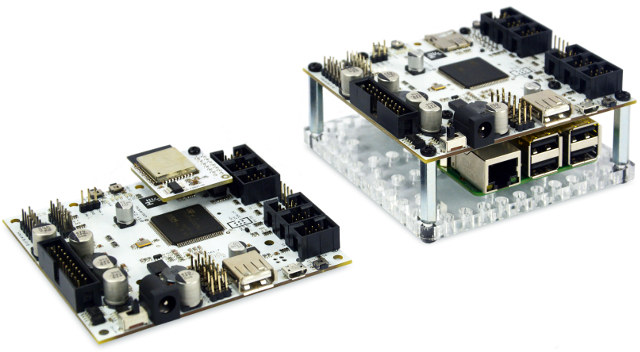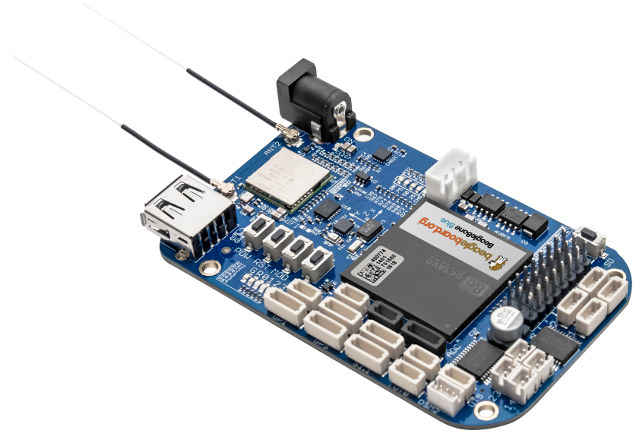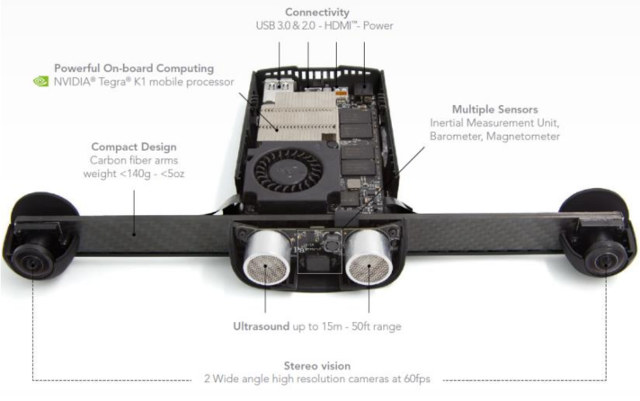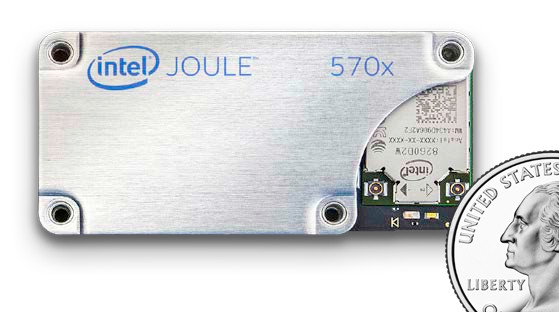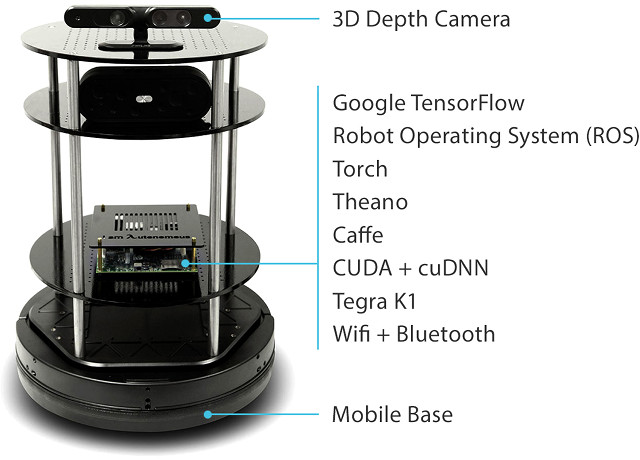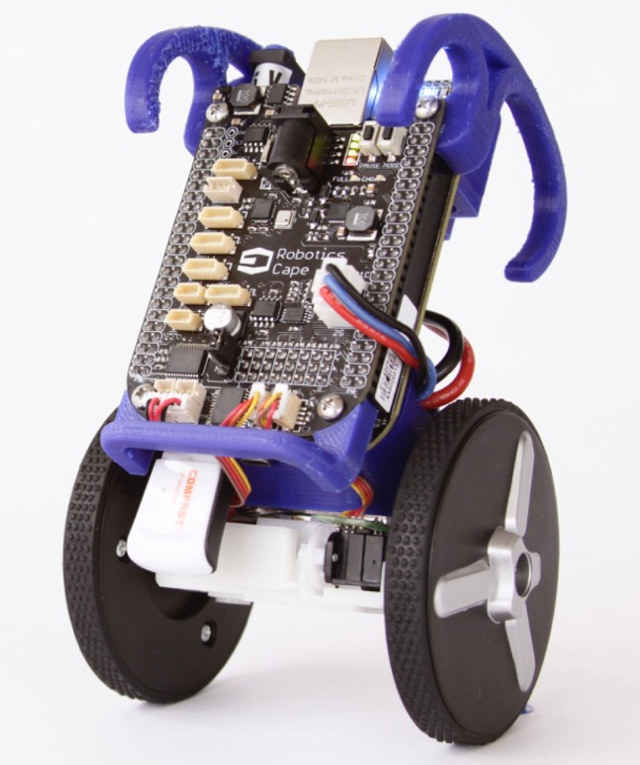Most embedded systems are used here on planet earth, but some do take off heading for space, and this week I come accross two separate projects leveraging Arm processors and FPGAs, as well as Ubuntu/ROS and Android operating systems: SpaceX Starlink communication satellites and Astrobee robots roaming in the international space station (ISS) SpaceX Starlink Satellites with Xilinx Ultrascale+ Arm + FPGA SoC SpaceX is about to launch a cloud of 60 Starlink communication satellites that aims to provide internet communication anywhere in the world. That’s just a start as eventually the plan is to get up to 12,000 of those satellites. Usually, we would not know many technical details about the satellites, but as one reader pointed out (Thanks Lawrence!), a Reddit thread about the launch, also pointed to a NASA document revealing the satellites are powered by Xilinx Ultrascale+ quad core Cortex-A53 processor with FPGA fabric. Milestone 2 […]
CrazyPi Board Runs Ubuntu and ROS on Rockchip RK3128 SoC for Robotics & IoT Projects (Crowdfunding)
CrazyPi is a maker board powered by Rockchip RK3128 quad core Cortex A7 processor that can take various magnetically connected modules such as LIDAR, gimbal, 4G LTE, etc.., and runs both Ubuntu and ROS (Robot Operating System) for DIY robotics & IoT projects. CrazyPi main board specifications: SoC – Rockchip RK3128 quad core Cortex A7 processor @ 1.2 GHz with ARM Mali GPU MCU – ARM Cortex-M3 @ 72 MHz System Memory – 1GB DDR3L @ 1066 MHz Storage – 16GB eMMC flash pre-loaded with Ubuntu and ROS Connectivity – 802.11 a/b/g/n WiFi @ 150 Mbps, Bluetooth 4.0 USB – 1x USB 2.0 host port Expansion Headers – Two headers with a total of 36-pin exposing 1x HDMI, 1x speaker, 1x microphone, 3x PWM, 1x I2C, 1x UART, 1x SPDIF, 1x SPI, 1x USB Power Supply – 5V via micro USB port ? Dimensions – Smaller than credit card The […]
Husarion CORE2 STM32 Board for Robotics Projects Works with ESP32, Raspberry Pi 3, or ASUS Tinkerboard
Husarion CORE2 is a board designed to make robotics projects simpler and faster to complete with pre-configured software and online management. Projects can start using LEGOs, before moving to 3D printed or laser-cut version of the mechanical parts without having to spend too much time on the electronics and software part of the project. Two versions of the board are available: CORE2 combining STM32 MCU with ESP32 WiFI & Bluetooth module, and CORE2-ROS with STM32 instead coupled to a Raspberry Pi 3 or ASUS Tinkerboard running ROS (Robot Operating System). Both solutions share most of the same specifications: MCU -STMicro STM32F4 ARM CORTEX-M4 MCU @ 168 MHz with 192 kB RAM, 1 MB Flash External Storage – 1x micro SD slot USB – 1x USB 2.0 host port with 1A charging capability; 1x micro USB port for debugging and programming via FTDI chip Expansion Headers hRPi expansion header for CORE2-ROS […]
$80 BeagleBone Blue Board Targets Robots & Drones, Robotics Education
Last year, we reported that BeagleBoard.org was working with the University of California San Diego on BeagleBone Blue board for robotics educational kits such as EduMiP self-balancing robot, and EduRover four wheel robot. The board has finally launched, so we know the full details, and it can be purchased for about $80 on Mouser, Element14 or Arrow websites. BeagleBone Blue specifications: SiP (System-in-Package) – Octavo Systems OSD3358 with TI Sitara AM3358 ARM Cortex-A8 processor @ up to 1 GHz, 2×32-bit 200-MHz programmable real-time units (PRUs), PowerVR SGX530 GPU, PMIC, and 512MB DDR3 Storage – 4GB eMMC flash, micro SD slot Connectivity – WiFi 802.11 b/g/n, Bluetooth 4.1 LE (TI Wilink 8) with two antennas USB – 1x USB 2.0 client and host port Sensors – 9 axis IMU, barometer Expansion Motor control – 8x 6V servo out, 4x DC motor out, 4x quadrature encoder in Other interfaces – GPIOs, 5x UARTs, 2x […]
Parrot S.L.A.M Dunk is a Ubuntu & ROS Computer with 3D Depth Cameras for Drones & Robots
Parrot and Canonical have partnered to develop the Parrot S.L.A.M.dunk development kit for the design of applications for autonomous navigation, obstacle avoidance, indoor navigation and 3D mapping for drones and robots, and running both Ubuntu 14.04 and ROS operating systems. The name of the kit is derived from its “Simultaneous Localization and Mapping algorithm” (S.L.A.M) allowing for location without GPS signal. Parrot S.L.A.M Dunk preliminary specifications: SoC – NVIDIA Tegra K1 processor Camera – Fish-eye stereo camera with a 1500×1500 resolution at 60fps Sensors – Inertial-measurement unit (IMU), ultrasound sensor up to 15 meters range, magnetometer, barometer Video Output – micro HDMI USB – 1x micro USB 2.0 port, 1x USB 3.0/2.0 port Weight – 140 grams Parrot S.L.A.M dunk can be fitted various drones and robotic platforms such as quadcopters and fixed-wings, rolling robots and articulated arms using mounting kits. The computer module is then connected to the host […]
Intel Unveils Joule Compute Module and Devkit for IoT based on Atom T5500 & T5700 Processors
As the Intel Developer Forum 2016 is now taking place in San Francisco, Intel has unveiled the Joule Compute Module and development kit targeting IoT applications. The module is not for low cost and low power sensor nodes however, as it features a powerful quad core Atom processor running at 1.5+ GHz, so it more suited to IoT gateways, or other application requiring lots of processing power to handle sensor data. Two models of the Joule module have been introduced: Intel Joule 570x platform SoC – Intel Atom T5700 64-bit quad-core processor @ 1.7 GHz / 2.4 GHz (Burst frequency) with Intel HD Graphics with 4K video capture and display System Memory – 4GB LPDDR4 RAM Storage – 16GB eMMC memory Connectivity – 802.11ac Wi-Fi with MIMO and Bluetooth 4.1 Other interfaces – USB 3.0, MPI CSI and DSI interfaces, and multiple GPIO, I2C, UART interfaces Intel Joule 550x platform […]
Autonomous Deep Learning Robot Features Nvidia Jetson TK1 Board, a 3D Camera, and More
Autonomous, a US company that makes smart products such as smart desks, virtual reality kits and autonomous robots, has recently introduced a deep learning robot that comes with a 3D camera, speaker and microphone, Jetson TK1 board, and a mobile base. The robot appears to be mostly made of the shelves parts: 3D Depth camera – Asus Xtion Pro 3D Depth Camera Speaker & Microphone Nvidia Jetson TK1 PM375 board – Nvidia Terra K1 quad-core Cortex A15 processor @ 2.3 GHz with a 192-core Kepler GPU, 2GB RAM, 16 GB flash Kobuki Mobile Base – Kobuki is the best mobile base designed for education and research on state of the art robotics. Kobuki provides power supplies for external computer power as well as additional sensors and actuators. Its highly accurate odometry, amended by calibrated gyroscope, enables precise navigation. The robot is designed for research in deep learning and mobile robotics, […]
BeagleBone Blue Board is Designed for Robots and UAVs
Beagleboard.org organization already tried to go Blue with BeagleBone BlueSteel-Basic that was supposed to a the single board computer to be used by OEM to integrate into their design instead of BeagleBone Black development board. For some unknown reasons this never happened, but they’ve now reused the color to introduce BeagleBone Blue board designed for robotics and UAVs. BeagleBone Blue specifications: SoC – Texas Instruments Sitara AM3358 Cortex A8 @ 1 GHz + PowerVR SGX530 GPU System Memory – 512 MB DDR3 Storage – 4 GB 8-bit on-board flash storage Connectivity – 802.11 b/g/n, Bluetooth 4.0 LE USB – USB 2.0 client and host Motor Control – 8x 6V servo out, 4x DC motor out, 4x quad enc in Sensors – 9 axis IMU, barometer “Easy connect Interfaces” – GPS, DSM2 radio, UARTs, SPI, I2C, analog, buttons, LEDs Power / Battery – 2-cell LiPo support with balancing, 6-16V charger input […]


